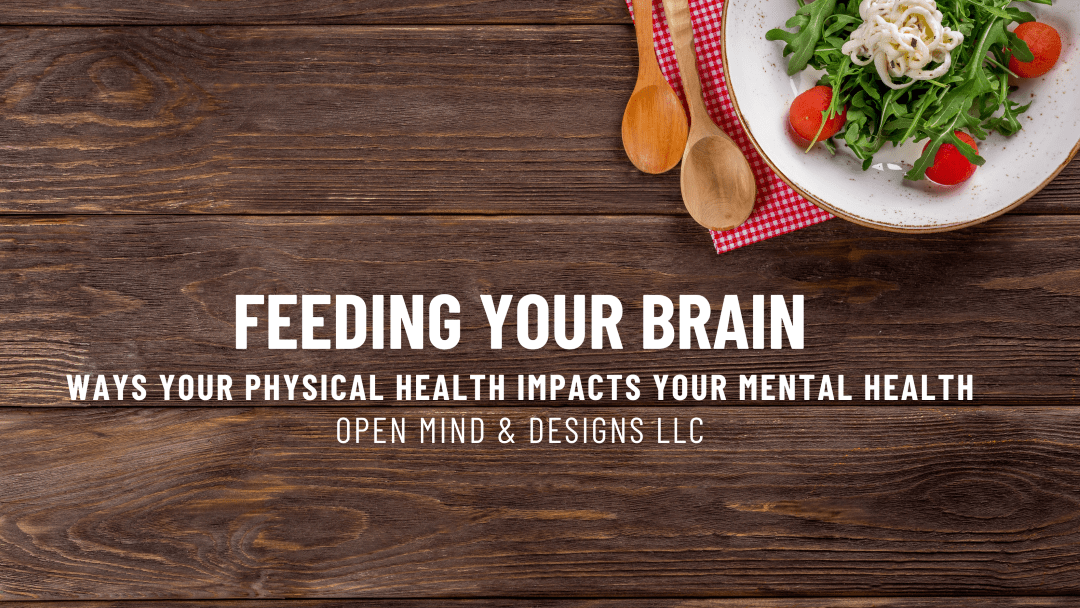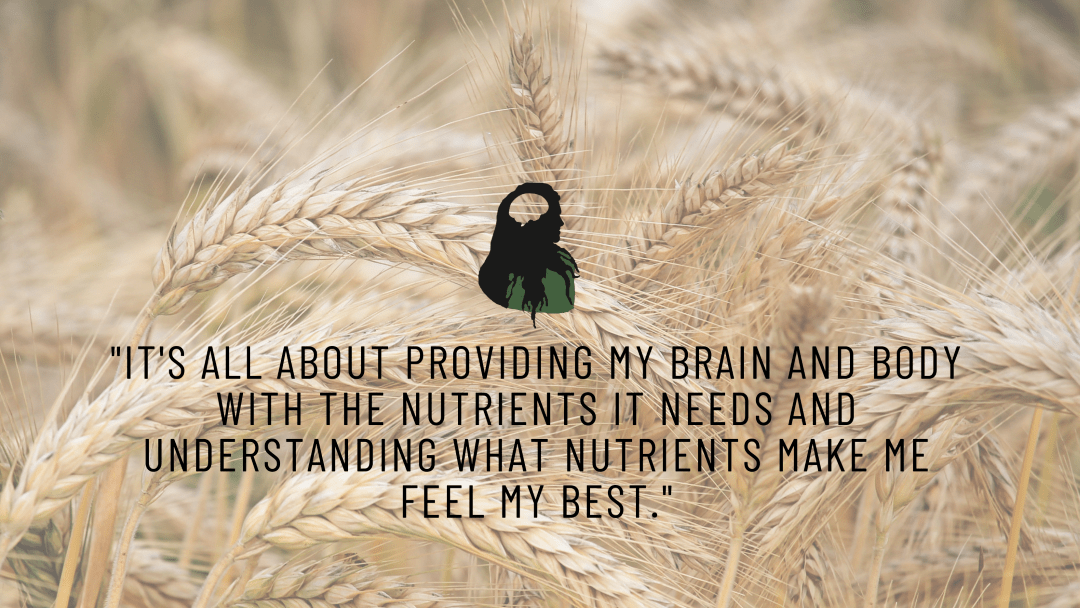Feeding Your Brain

It's no doubt that a healthy diet is important for a healthy lifestyle, but oftentimes people forget to mention just how important nutrition becomes for a brain after enduring a TBI. A normal human brain requires so much nutrition to perform well on a day to day basis. A brain enduring trauma needs extra energy, and nutrients to keep healthy brain chemistry, the function of nerves, and correct neurotransmitter levels.

What are the essentials of a healthy diet? This is different for every brain especially those continuously changing due to injuries and recovery. Nutrition has become a never-ending process- and I am learning something new daily! For me, it's all about providing my brain and body with the nutrients it needs and understanding what nutrients make me feel my best. throughout the last few years, I've tried many "diets" and plans and have settled on a combination that works best for my lifestyle and doesn't require me to take other supplements.
When I was first diagnosed with my TBI, the name of the game was to eat foods that stayed down, didn't make me nauseous, or tasted like metal. With a dislocated jaw and other physical symptoms, soft foods and smoothies seemed to be the winner.
As I progressed throughout my recovery, I was diagnosed as an epileptic and had very good luck managing my symptoms with the Keto Diet. The basics: low carbs and high fats. I relied heavily on meats and vitamins I could only get from animal products. In addition, made sure that I knew where my meats were coming from. My brain "operated" well here for multiple years, and made my symptoms manageable. In addition, provided enough nutrition for strong energy levels to get through my day.
As I entered new stages in my life, took on new jobs, and welcomed new seasons of recovery, I could feel that my brain wasn't getting what it needed anymore. And began to search for new nutritional information that would be beneficial to where I was headed.

I quickly learned that your lifestyle plays a huge role in your nutrition. For me, I am someone who is incredibly active and can be found most of the time outdoors. Hiking, running trails, canoe portages, and other activities required much more nutrition than I once thought. In addition, I had neglected the important vitamins and minerals my brain needed.
Today my diet is very much still low carbs and a high fat and protein diet, with some twists that allow my brain and body to feel their best. I still stay away from alcohol and caffeine consumption, and overall listen to what my body needs. Currently, I am working hard to include all valuable vitamins and minerals into my diet as supplements are typically only a semi-effective way to make up lacking nutrition. In addition, have cut out all things processed and am reaching for a greater understanding of where my food comes from.
Stay Updated on Advancements On Traumatic Brain &
Spinal Cord Injuries
About the Author




